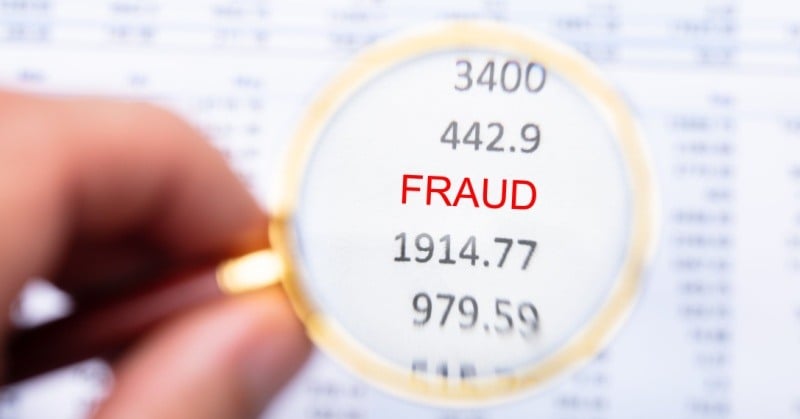A colleague told me about a small business she works with where the bookkeeper embezzled $40,000 from the owner. While the bookkeeper was arrested, that is small consolation, as the business owner is unlikely to receive restitution. How would you feel if $40,000 in cash was unrecoverable?
So how did it happen? The usual way. The business owner over-expanded the definition of “full charge bookkeeper” and let her bookkeeper basically handle everything, because she was “so good” and “so trustworthy.” A Google search of “full charge bookkeeper” defines the role as someone who “typically must have extensive experience with payroll, financial statements, bank reconciliation, and general bookkeeping.”
Notice how that definition does not include this: “Someone to whom the business owner abdicates all financial responsibility and oversight of their own business.” Am I blaming the victim? Yes, in part! A business owner must be responsible for knowing what is going on in their business, and in their books. Just because you have hired a bookkeeper does not mean you no longer have oversight tasks to complete.
When it comes to safe books, there must always be a separation of duties. If the bookkeeper enters the bills and the bill payments, and prints the checks or processes the e-payments, and reconciles the bank statements, there is opportunity for fraud.
There are so many articles on the importance of separation of duties, and it feels like we have all read them, but we keep hearing about cases of fraud. This leads me to believe that as industry professionals, we are aware of the risks, but we are not training our small business owners about the risks and how to protect themselves.
As a certified bookkeeper with the American Institute of Professional Bookkeepers (AIPB), I studied an entire module called “Mastering Internal Controls and Fraud Prevention.” Most of the information on internal fraud says similar things.
A typical fraudster starts small, such as “Oh, Sally won’t miss $20,” which then snowballs into, “Sally won’t miss $100,” then keeps escalating. The theft continues with other rationalizations in the mind of the fraudster—“I’ll repay Sally as soon as I’m flush again”—and/or personal circumstances come into play, such as gambling or drug addiction. It's a fraudster's rationalization process.
Business owner’s responsibilities
Let’s start to better train our clients on what their responsibilities are as business owners. They know how to do whatever it is they opened their business to do (consulting, plumbing, attorney-ing), but they have other responsibilities as a business owner. These include:
- Look at monthly bank statements and cleared checks/e-payments.
- Look at credit card statements and monthly charges, verifying payments are made to the card each month, and that the balance seems reasonable.
Note: At one firm where I performed a fraud audit, the bookkeeper was using the firm’s online banking to pay her own Citicard and Chase card, not the firm’s. Debits from the checking account looked accurate, as the firm did indeed have a Citicard and Chase card, but since the owner never looked at the credit card statements, he did not know that the balances on those cards were increasing every month instead of decreasing, and late payment fees and interest were being assessed. The bookkeeper knew the owner never looked at the monthly statements and took advantage.
- Look at online banking history; ask questions about transactions which seem unfamiliar.
- Look at payroll reports and paycheck amounts, making sure everyone is receiving gross wages in the proper amount.
- Do not give check signing authority or access to a signature stamp to the bookkeeper.
- Have procedures in place to prevent inventory theft. This is a large topic I will not go into here. A Google search can provide key advice.
- Have petty cash procedures in place to prevent theft of cash from the cash box or cash register.
- Be “scam aware” of letters and emails pitching services that may not be needed, or that business owners or their bookkeepers can do for free, such as renewing annual city or county business licenses.
- Look at the profit and loss (P&L) and balance sheet on a regular basis. Does it seem like the business never has any cash, even though they are billing a lot? Fraud could be the reason.
- Require timely monthly and quarterly reports, and look at them.
Note: One firm I know never received their quarterly payroll reports in a timely manner from their small, local payroll firm. It turned out the firm was not preparing them, unless asked, and was not remitting payroll taxes collected to the IRS. No quarterly payroll tax return was a major red flag that was unfortunately ignored.
Other fun and useful resources
These are three good ones:
- Check out the website of Frank Abagnale from “Catch Me If You Can” fame. He has several free .pdfs for download.
- Google “separation of duties” and read up on internal controls.
- Check out the Fraud Resources at the Association of Certified Fraud Examiners (ACFE).
Managing a manager
Small business owners are busy people, sometimes too busy to perform basic fraud prevention tasks. However, these tasks are part and parcel of being a business owner. Some don’t take much time, some do, but all are important. Bookkeepers and accountants can help small business owners by suggesting these kinds of checks and balances be added to the business workflows, and/or incorporating them into monthly or quarterly client reviews.
.png?width=150&height=63&name=TWRlogo-regmark_blueblack%20(1).png)
.png)










Do you have questions about this article? Email us and let us know > info@woodard.com
Comments: